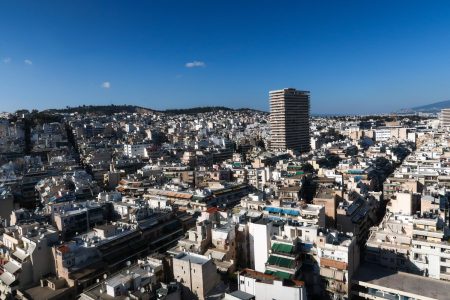A lot can be said about the nature and the structure of the proposal for constitutional reform presented by the Prime Minister on Monday evening.
However nobody can ignore the fact that the even was entirely partisan and that Parliament was used décor to promote it.
The choice may be ignored by many, but the symbolism is both huge and painful.
If anything, it reflects intentions and aims, which are no other than to adapt the constitutional map to partisan beliefs and positions.
The aforementioned is confirmed by the proposals themselves.
In the name of securing rights or beliefs, the government proposal is making the already binding framework of the Constitutions even more binding; it is becoming increasingly restrictive.
That is why the proposal has clear partisan overtones, defined by the obsessions of the person who introduced it, rather than reflecting the needs of the country and its people.
The constitutional legislator did not identify hitherto random principles and avoided, to the extent that it is possible, direct prohibitions or did not envisage any absolute restrictions.
This was done precisely to avoid binding, by taking into consideration the effect of time and the change, occasionally, of circumstances.
But the individual proposals are also lacking. The two terms for MPs do not constitute a belief in Democracy, nor does the restriction of the Prime Minister being elected. The country’s History resoundingly rejects the proposal.
But even the proposal to lift parliamentary immunity is half-hearted. The Prime Minister heralded a revolution and immediately denounced it with an exception.
Nor of course can one be considered a daredevil on our days by providing religious neutrality, when the right to a political oath has been established for all.
The provision for water and energy remaining in public hands seems more paradoxical than anything else.
More so when the Prime Minister has agreed to the privatization of everything, especially electrical production, in the last bailout.
The process suggests that the process will last for some time, with month-long debates between committees in all 13 prefectures. This means that there will not be any result until Spring 2017.
The government will not submit a comprehensive proposal for constitutional review before Spring 2017.
All this confirms the initial estimation and the décor symbolized by Parliament.
Their partisan intent to keep the “conscripted” cozy and to fool the people that their rights will be protected one day.
Unfortunately, in no way does the government proposal address the country’s current and future problems. It only serves the needs of the current policy and nothing more.
TO VIMA



